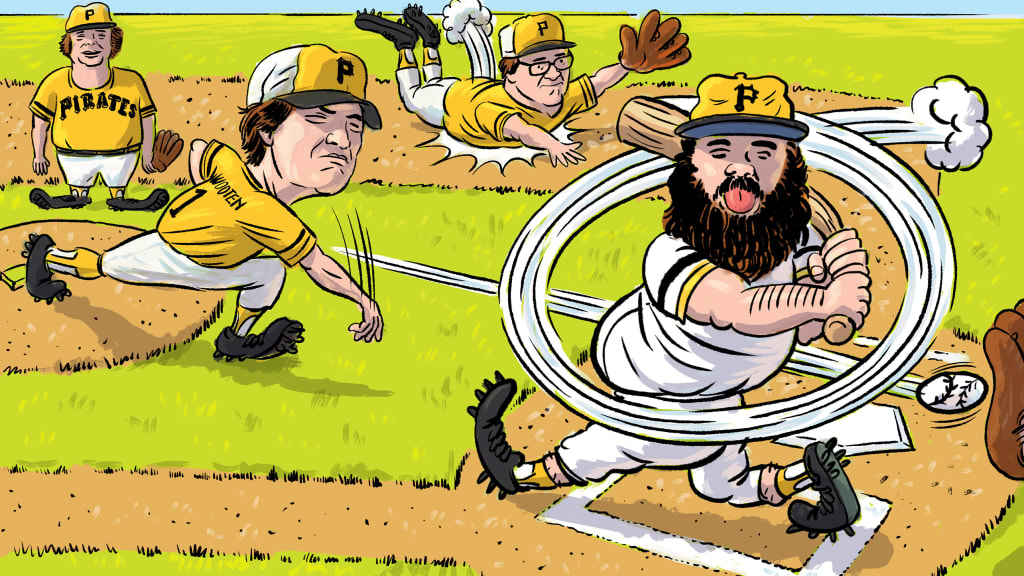
Their hair was straggly and long, their jerseys stretched taut against bulging midsections. When they ran laps around the field, they lagged far behind the rest of the team -- huffing and puffing and gasping for air. Their swings could at best be described as resembling an athletic motion, and at worst be considered an affront to the dignity of the sport.
These weren't some prospects called over from Minor League camp or veterans looking to latch on for one final season. These were a collection of people with resumes that would make any liberal arts university proud. There was a poet, a literary agent, a journalist, a photographer, a lawyer and a doctor who all joined up with the Pirates for one beautiful week in the spring of 1973.
Here is our lineup:
- Donald Hall: Poet. He would be named the poet laureate in 2006.
- Gerard McCauley: Literary agent. These baseball weirdos were his clients.
- Charles Morgan Jr: ACLU lawyer specializing in civil rights.
- John A. Parrish: A famed doctor, he had recently penned "12-20-5: A Doctor's Year in Vietnam."
- James T. Wooten: New York Times journalist and Philadelphia Inquirer columnist. He would later work for ABC News and win the Robert F. Kennedy Book Award for "We Are All The Same."
- Bob Adelman: Photographer best known for his work photographing critical members of the Civil Rights movement including Malcolm X, Martin Luther King Jr., and James Baldwin
"One morning I came out to Spring Training and I saw four or five -- I'll call them elephants -- anyway, they looked like elephants," Pirates pitcher Dock Ellis wrote in the introduction to "Playing Around: The Million-Dollar Infield Goes to Florida."
After being told that the group was there to write a book about their experience playing baseball and working themselves into shape during Spring Training, Ellis had no choice but to laugh.
"I said there ain't no way you are going to play ball," he wrote. "It didn't look like they could swing a bat and they didn't look like they could throw or run."
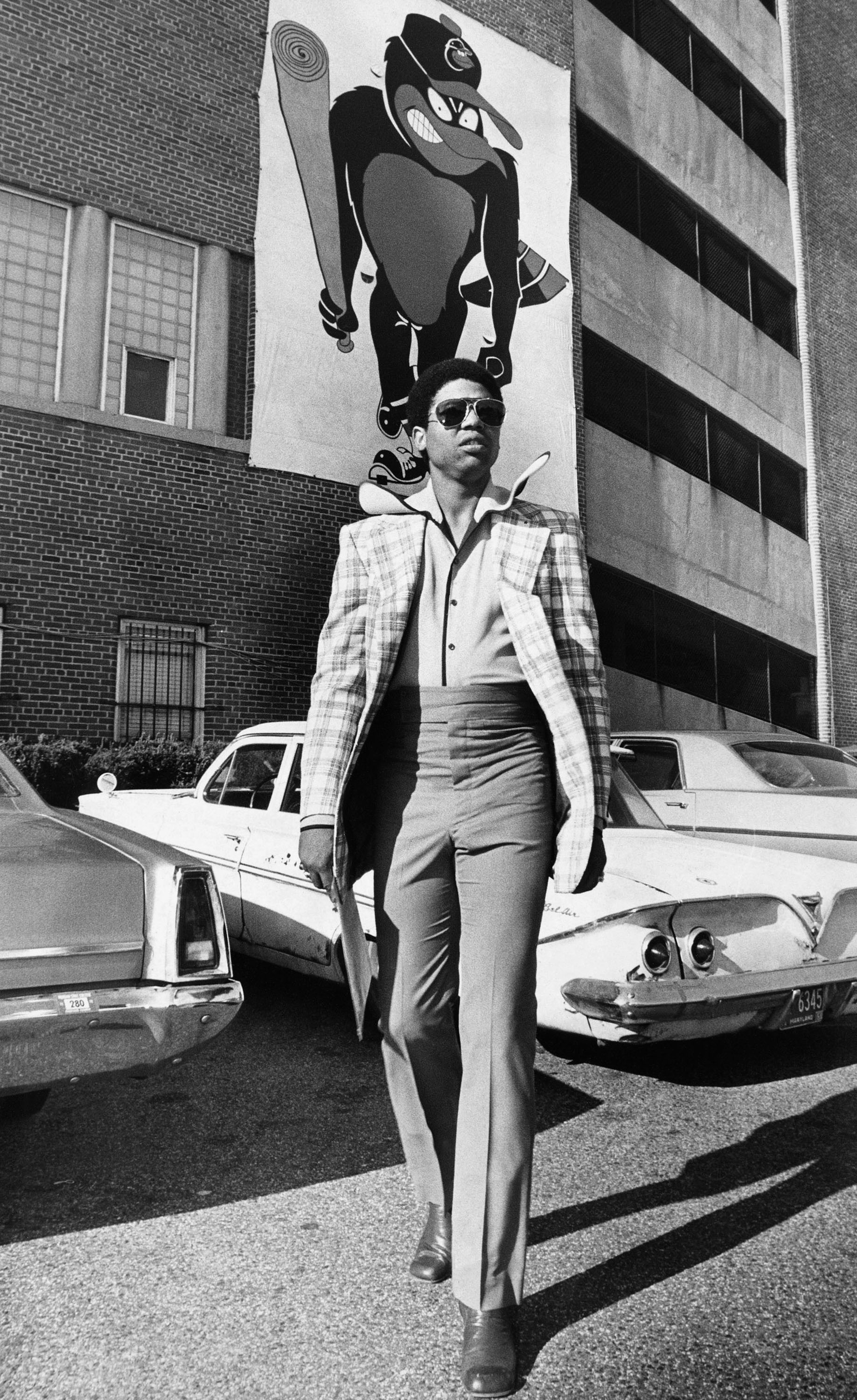
The idea of a famous person dropping into Spring Training for a day to take some cuts, pose for some photos and chat with ballplayers is nothing new. Garth Brooks made it an annual tradition and Nelly -- fresh off his performance at Mookie Betts' wedding -- did the same this spring. But this was not a quick photo opportunity, nor was this some major star hitting in the cage for an afternoon. Instead, this cast of castoffs had a decidedly more literary bent, with the lack of marketing oomph that one would expect.
"That book sold 41 copies," Wooten said with a laugh in a recent phone call from his winter home not far from where the Pirates play. "I'm only kidding, I don't know how many books it sold. It wasn't much. I don't think we actually earned our expenses."
The idea was McCauley's brainchild, himself a lifelong Pirates fan. With a little bravado, a willingness to bear the brunt of some jabs and jokes and with a fair sprinkling of adventure journalism, he assembled this crack squad and brought them down to Bradenton, Fla., to live out the dreams they didn't realize they had harbored since early in their lives.
After pitching the idea to Pirates publicity director Bill Guilfoile, and getting the go-ahead from manager Bill Virdon and GM Joe Brown, it was set. Spring Training was on.
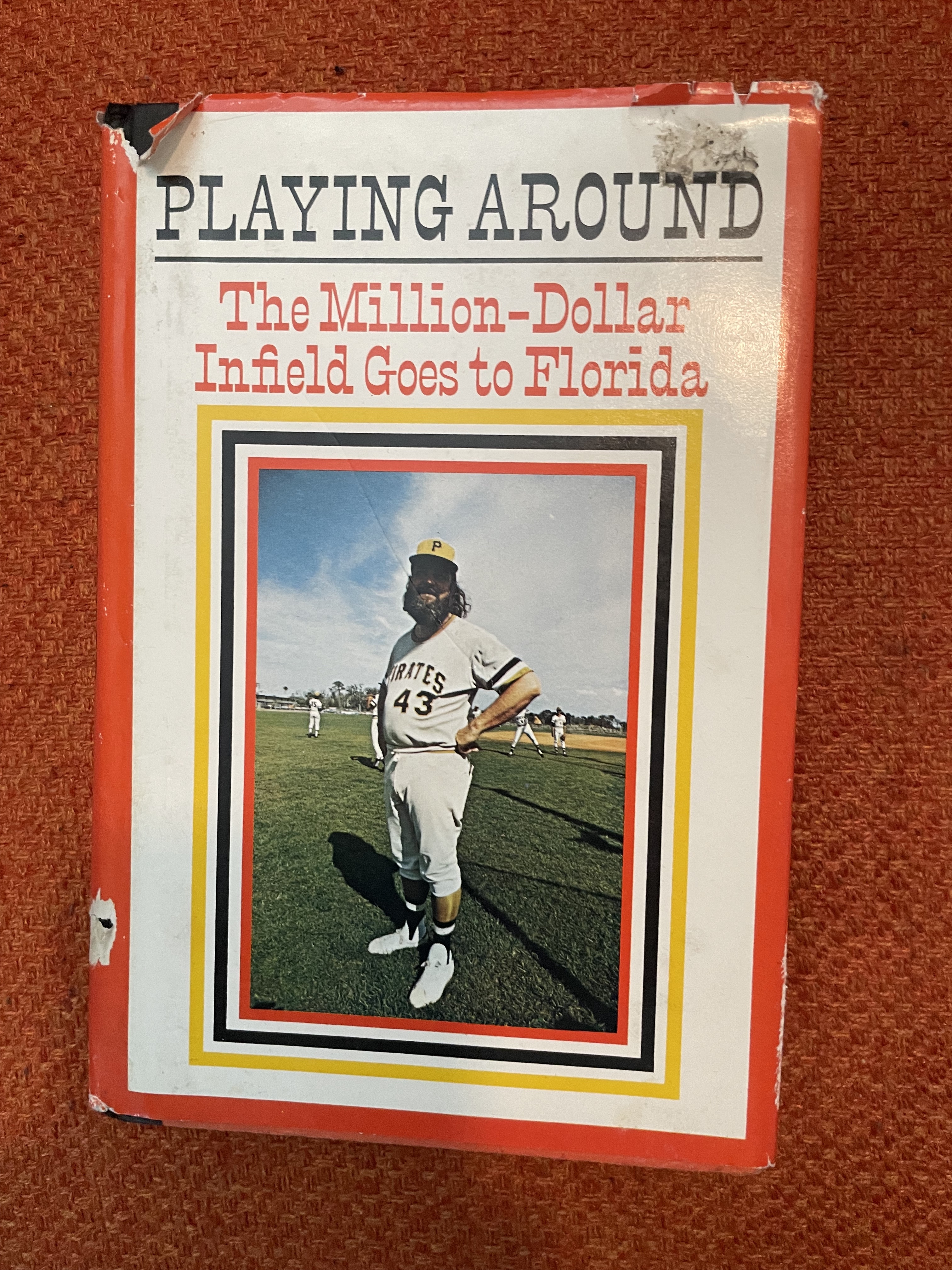
Surprisingly, not everyone was thrilled with the invite. While many, like Hall -- himself a lifelong Tigers fan who would listen to their games every night with his wife -- were excited, Wooten didn't immediately sign on.
"I thought it was such an obvious aping of George Plimpton [Author of 'Paper Lions']. I didn't want to be involved in it. There was a time when I thought it was beneath me," Wooten said. "And then people kept saying, 'Oh, you gotta go, you gotta go. It's a week in the sun!' So, I very reluctantly said 'OK, I'll go.' It turned out to have been one of the really good, warm experiences of my life."
Fortunately, Wooten could fake looking like an athlete. The rest? That was harder.
No uniform fit Adelman, and so Willie Stargell had to offer up one of his jerseys to cover the photog's frame. When Hall wasn't wearing his "tourist costume" of Bermuda shorts and leather sandals with a peace sign on the instep, he had to squeeze into a uniform two sizes smaller than he would have preferred.
"The new bonus wonders ate more, slept more, smoked more, and drank more than did the old regulars of the Pittsburgh Pirates," Dr. Parrish wrote in his chapter.
"There weren't any athletes except me. Nobody had played -- I guess Gerry [McCauley] may have played high school baseball," Wooten said. "It was basically a lark. I think the general manager [Joe Brown] said to me, 'You can't make chicken salad out of chicken [poop].' That was pretty much the unspoken melody of our stay down there. But I think it was great fun for everybody."
When pitcher Steve Blass met the group, he pointed to their waistlines and announced, "Look at those boilers!" (Once he learned they were writers, however, the then-31-year-old changed his tact. "Maybe you should tell me what I should do when I grow up?" Blass asked.)
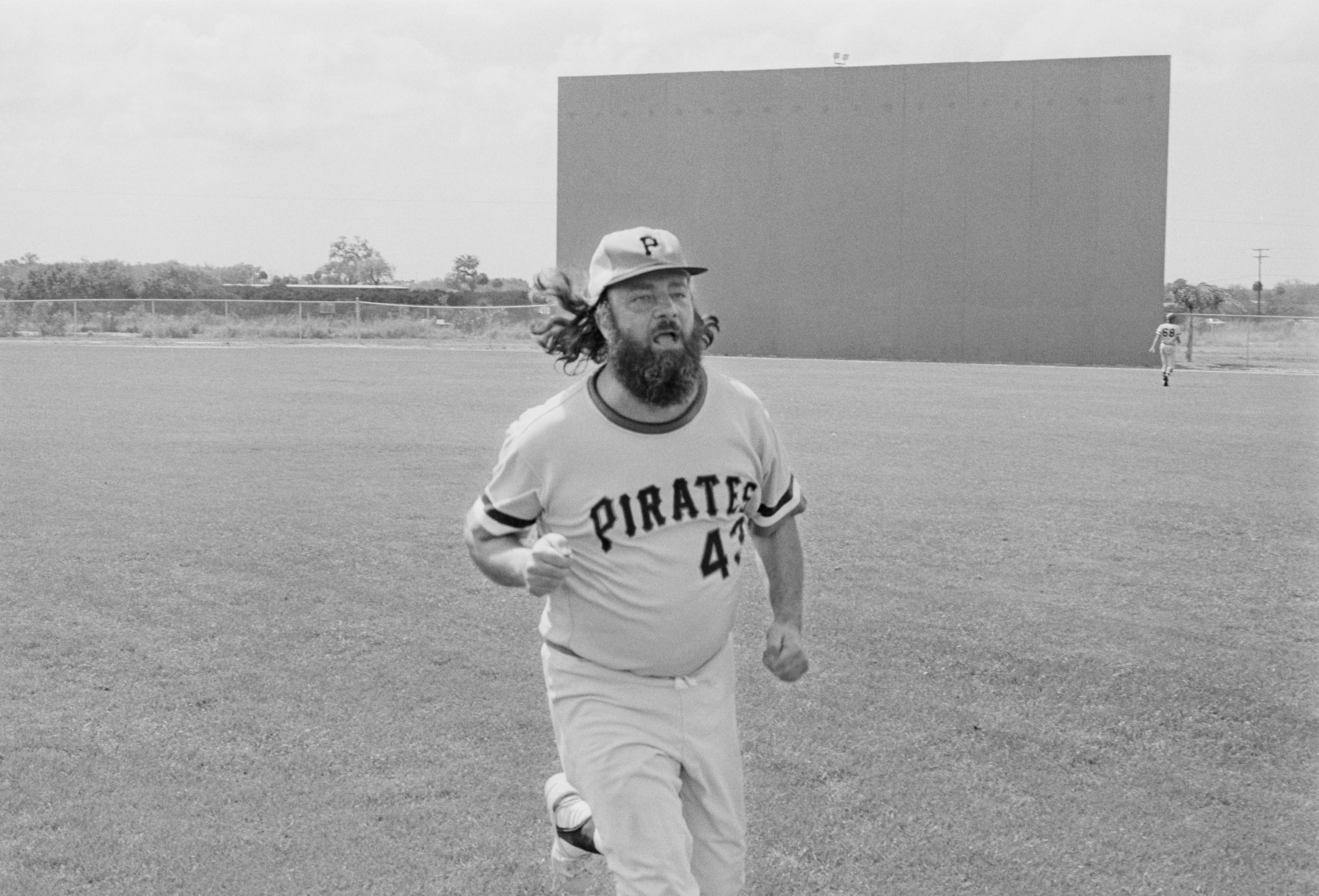
"I was all full of myself," Blass said when he reminisced about those days. "We just won the World Series a couple years before and had a good time. Hell, when you're on that kind of roll you can say anything."
"I didn't know anything about poetry," he added. "So it was a little strange. I didn't know what they were looking for or what they were trying to do. They were nice guys, very pleasant. but they weren't in really good shape," he said with a laugh.
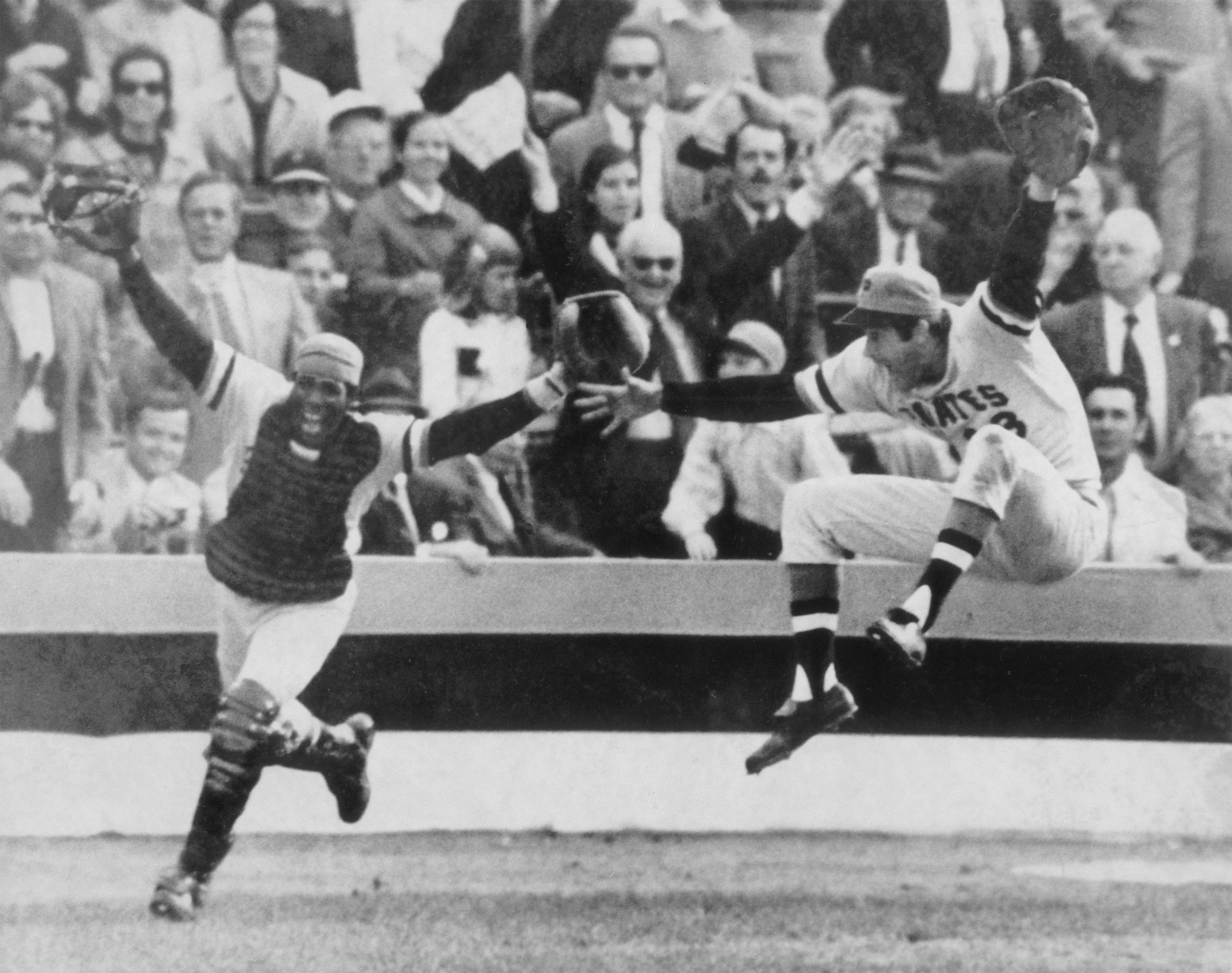
These interlopers did their best to stay out of the Pirates' way. They took to their own small backfield at the Pirates Spring Training complex where they could whiff with abandon and bobble grounders with reckless glee.
McCauley hurt himself the first night they were in town when he tried to show off his sliding form at the bar. Morgan would dive the wrong way for grounders hit to him at third and McCauley wrote that Hall's "face washed over with anxiety" every time a ball was hit his way. Ellis would often stop by to gawk and insist that this crew had better work on their conditioning and get to running.
"Spring Training can be a very tense time for very young players or older players. Although none of them except Dock ever challenged us on it, I got the vibrations that they weren't happy with the front office who had given us permission to do this," Wooten said. "We tried to stay out of their way, I mean, really tried hard. That was something we talked about every single morning when we drove over to practice. We were not really here to make the team, we're having a good time and let's not offend these players who are trying to make a living. That was all clear to us. And so it was relatively smooth the entire time."
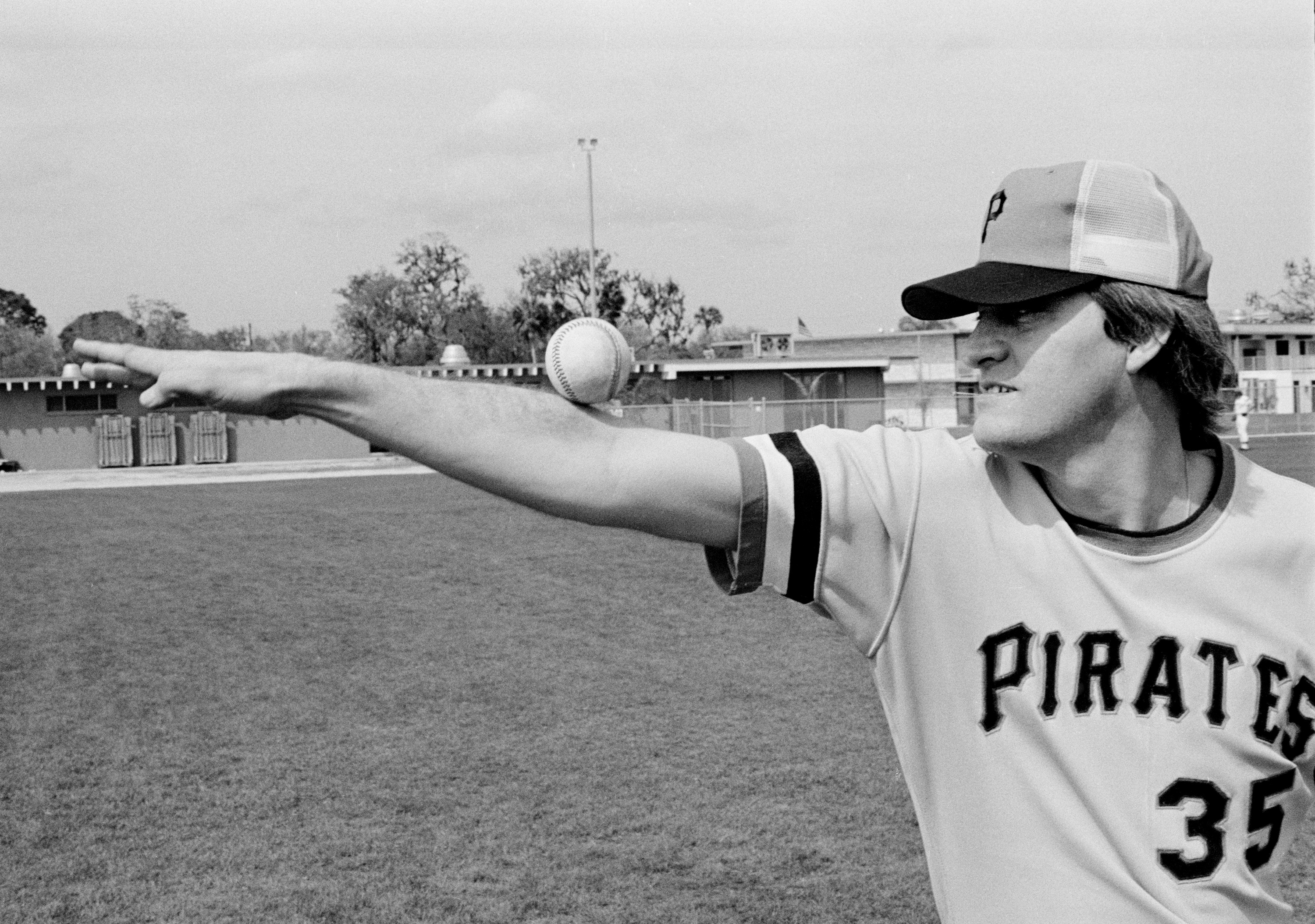
Eventually, one player took pity on this group because he himself was an outsider. When it was revealed that these guys came to Spring Training without a glove, it was up to young outfielder Luke Wrenn to share his own.
Wrenn attended nearby Manatee Junior College and had impressed the Pirates brass in the instructional league. He took a job at Pirate City that allowed him to live on the campus year-round, so when Spring Training came around, Danny Murtaugh gave him permission to train with the big league players -- just like the vacationing writers.
"I was just excited like they were," said Wrenn, now an investment advisor after playing in the Minors and then scouting for 37 years. "I was kind of like them. I realized that most of those Major Leaguers weren't going to give them any time. They took one look at those guys and were like, 'These guys are hopeless.'"
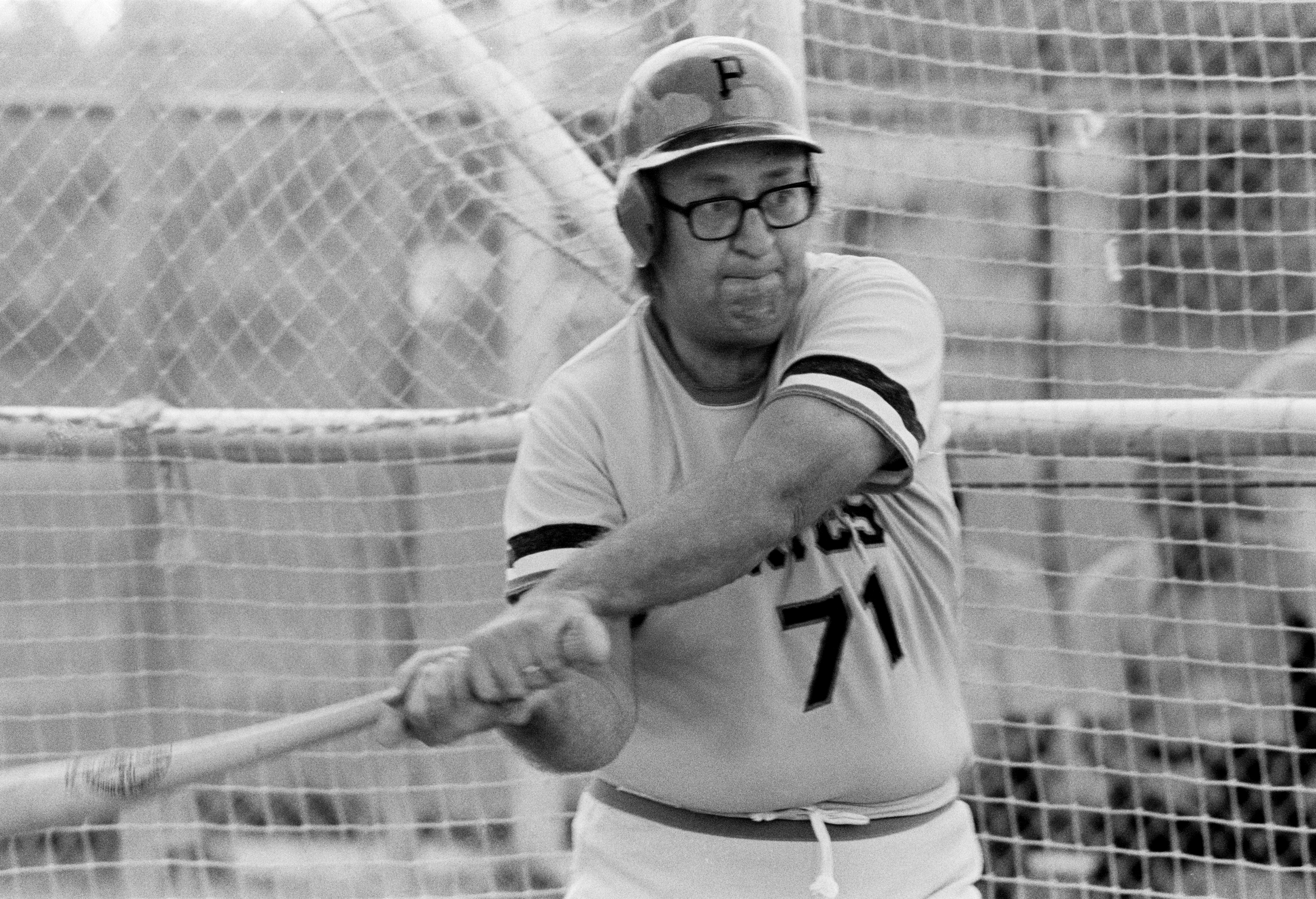
Somehow, despite their extreme lack of skill, they managed to find some success out on the field. The fans loved them because -- as Parrish wrote -- they were "all hustle, no muscle." Kids would demand their autographs no matter how many times the group tried to explain that they weren't actually ballplayers.
"You can't fool us, mister," one child said, "they don't give those uniforms to just anybody."
So, Hall had no choice: He signed for them. But he made sure to note "Writer, not Pirate" under each signature.
Wooten managed to lace a little bloop single against Mickey Lolich.
"[Lolich] burned a couple past me," Wooten said. "And when the catcher whose name I've now forgotten, said 'OK, not so fast, straight down the middle,' he grooved it. I managed to get around it and hit a little blooper line drive out to right field. I could always say to all my friends, I'm the only one in this group who ever got a hit off a Major League pitcher."
Wrenn even got his moment in the sun, too. Brought on for the final innings of an early Spring Training game, Wrenn drove in the tying run before scoring the winning run in the bottom of the ninth of a 7-6 victory against the Twins.
"All the players are really happy with me because I helped [end the game]," Wrenn said. "They didn't care about what I did, they were just glad to get dressed and leave. Jackie Hernandez was on the team and I remember he kept saying, 'My hero, my hero!'"
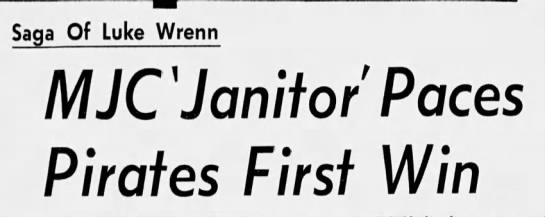
For all the stress, all the embarrassment, and even the abysmal book sales, the experience of playing legit fantasy baseball was nothing but a highlight.
"I think the camaraderie that we established in those week or 10 days -- that was good. That was warm and true," Wooten said.
Wrenn became lifelong friends with Hall, and even got a little fame as the tale was picked up by Playboy magazine that spring.
"There were people from church saying we always wanted to buy that magazine, but we didn't have excuse to do it," he said with a laugh.
And maybe even the Pirates players got something out of it, too.
"These guys are people of higher learning and they were interested in the filthy old Buccos," Blass remembered thinking. "Maybe we can learn some new words, because all we knew were the dirty words in Spanish and where the beer was."
But whether it was the backfield or the backyard, a Major League team or just a bunch of poets playing pretend, it was still baseball. And that alone has a special magic to it.
After saying goodbye to Wrenn and his teammates, Hall reflected on the generations of relatives and people who came before him to play the game. The sport connected them all.
"... for baseball is continuous," Hall wrote, "like nothing else among American things, an endless game of repeated summers, joining the long generations of all fathers and all sons."
